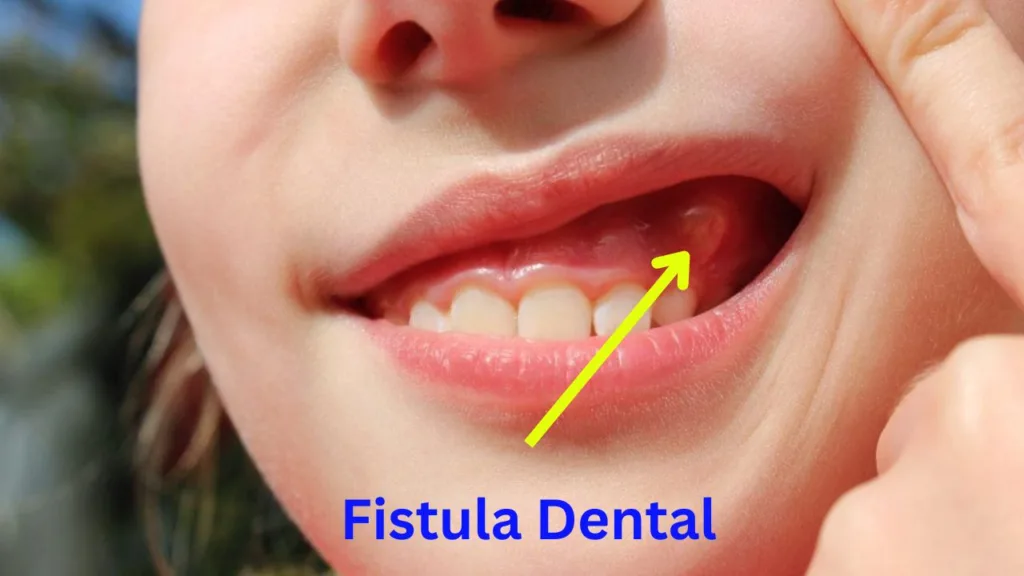
Fistula dental, is a critical aspect of overall well-being, and the condition that deserves attention in dental health. This article aims to shed light on the various aspects of dental fistula, from its causes and symptoms to innovative treatment options and global awareness initiatives.
Causes of Fistula Dental
Table of Contents
- 0.1 Causes of Fistula Dental
- 0.2 Types of Dental Fistula
- 0.3 Symptoms and Signs
- 0.4 Diagnosis
- 0.5 Treatment Options
- 0.6 Prevention Strategies
- 0.7 Living with Dental Fistula
- 0.8 Impact on Oral Health
- 0.9 Case Studies
- 0.10 Innovations in Dental Care
- 0.11 The Role of Nutrition
- 0.12 Addressing Dental Anxiety
- 0.13 Global Awareness and Initiatives
- 0.14 Conclusion
- 1 FAQs
Poor oral hygiene is a primary contributor to the development of dental fistula. When dental infections are left untreated, they can lead to complications such as fistulas. Trauma or injury to the oral cavity is another factor that can initiate the formation of fistula dental.
- Poor oral hygiene
- Untreated dental infections
- Trauma or injury to the oral cavity
Types of Dental Fistula
Dental fistulas can manifest in different forms. Gingival fistulas, buccal fistulas, and lingual fistulas are variations that have unique characteristics and may require specific approaches in treatment.
- Gingival Fistula
- Buccal Fistula
- Lingual Fistula
Symptoms and Signs
Recognizing the symptoms of dental fistula is crucial for timely intervention. Pain, swelling, and pus discharge are common signs. Additionally, changes in taste or persistent bad breath may indicate the presence of a fistula.
- Pain and discomfort
- Swelling and pus discharge
- Changes in taste or bad breath
Diagnosis
Accurate diagnosis is essential for effective treatment. Dental professionals use a combination of dental examinations and imaging techniques such as X-rays to identify and assess dental fistulas.
- Dental examination
- Imaging techniques like X-rays
Treatment Options
Addressing dental fistula involves a multi-faceted approach. Antibiotics may be prescribed to control infection, while dental procedures aim to eliminate the root cause. In severe cases, surgical interventions might be necessary for complete resolution.
- Antibiotics for infection control
- Dental procedures to address the underlying cause
- Surgical interventions if necessary
- Homeopathic Medicine
- Homeopathic Medicines for Dental Fistula: Key Symptoms and Remedies
- Dental fistula, a condition that involves the formation of abnormal connections in the oral cavity, can be distressing. Homeopathic remedies offer a holistic approach to address the symptoms of dental fistula. Here are some key symptoms and corresponding homeopathic medicines that may be considered:
- 1. Silicea
- Key Symptoms:
- Fistula with discharge of thick, yellow pus.
- Swelling and pain in the affected area.
- Slow-healing abscesses.
- 2. Myristica Sebifera
- Key Symptoms:
- Pus discharge with offensive odor.
- Intense throbbing pain.
- Abscesses with a tendency to burst.
- 3. Hepar Sulphuris
- Key Symptoms:
- Fistula with suppuration and sensitivity to touch.
- Cold sensitivity.
- Discharge of offensive-smelling pus.
- 4. Belladonna
- Key Symptoms:
- Swelling and redness in the affected area.
- Throbbing pain that worsens with touch.
- Fever accompanying dental issues.
- 5. Mercurius Solubilis
- Key Symptoms:
- Excessive salivation with metallic taste.
- Swollen glands and bad breath.
- Pus discharge with bleeding.
- 6. Calcarea Fluorica
- Key Symptoms:
- Hardened and enlarged glands.
- Fistula with itching and burning.
- Tendency for recurrent abscess formation.
- 7. Arsenicum Album
- Key Symptoms:
- Burning pain in the affected area.
- Anxiety and restlessness.
- Symptoms worsen at night.
- 8. Thuja Occidentalis
- Key Symptoms:
- Fistula with thick, greenish discharge.
- Warts or growths on the affected area.
- Emotional sensitivity.
- 9. Graphites
- Key Symptoms:
- Fistula with honey-like, sticky discharge.
- Cracks and fissures in the affected area.
- Skin-related symptoms.
- 10. Kali Bichromicum
- – **Key Symptoms:**
- – Stringy, tough mucus discharge.
- – Ulcers and pain in the affected area.
- – Symptoms worsen with cold.
- It’s crucial to note that homeopathic remedies are individualized, and a professional homeopath should be consulted for a personalized treatment plan. These remedies aim to address the symptoms associated with dental fistula and promote overall oral health.
- Always seek guidance from a qualified healthcare practitioner before starting any homeopathic treatment, especially for dental conditions. Integrating homeopathy with conventional dental care may provide a comprehensive approach to managing dental fistula symptoms.
Prevention Strategies
Preventing dental fistulas starts with regular dental check-ups and maintaining good oral hygiene practices. Individuals are encouraged to be proactive in their dental care to minimize the risk of developing fistulas.
- Importance of regular dental check-ups
- Maintaining good oral hygiene practices
Living with Dental Fistula
Coping with dental fistula can be challenging, but support and resources are available. This section explores various coping mechanisms and strategies for individuals dealing with the condition.
- Coping mechanisms for individuals dealing with dental fistula
- Support and resources available
Impact on Oral Health
The long-term consequences of untreated dental fistula can extend beyond the immediate symptoms. This section discusses the potential connections between dental fistulas and other oral health issues.
- Long-term consequences of untreated dental fistula
- Connection to other dental issues
Case Studies
Real-life examples provide insights into the experiences of individuals who have dealt with dental fistulas. Highlighting successful treatment outcomes can offer hope and encouragement to others facing similar challenges.
- Real-life examples of individuals with dental fistula
- Successful treatment outcomes
Innovations in Dental Care
Advancements in dental technology play a significant role in improving the outcomes for dental fistula cases. This section explores how modern treatments are positively impacting individuals with dental fistula.
- Advancements in dental technology
- How modern treatments impact dental fistula cases
The Role of Nutrition
Diet plays a crucial role in oral health. This section discusses the influence of nutrition on preventing dental issues, including foods that can contribute to maintaining oral health and preventing fistulas.
- How diet influences oral health
- Foods that can contribute to prevention
Addressing Dental Anxiety
Dental anxiety is a common concern that may prevent individuals from seeking timely dental care. This section emphasizes the importance of recognizing and addressing anxiety, fostering open communication between patients and dental professionals.
- Recognizing and addressing anxiety related to dental procedures
- Importance of open communication with dental professionals
Global Awareness and Initiatives
Raising awareness about dental health is a global effort. This section explores current initiatives aimed at increasing awareness and providing dental care in underserved communities.
- Current efforts to raise awareness about dental health
- Initiatives for providing dental care in underserved communities
Conclusion
In conclusion, understanding and addressing dental fistula are vital for maintaining optimal oral health. By recognizing the causes, symptoms, and available treatments, individuals can take proactive steps to prevent and manage dental fistulas.
- Summarizing the key points
- Encouraging proactive dental care
FAQs
- Is dental fistula a common condition?
- Dental fistula is relatively uncommon but can occur as a complication of untreated dental issues.
- Are there any home remedies for dental fistula?
- Home remedies may provide temporary relief, but professional dental care is essential for addressing the root cause.
- Can dental fistulas be prevented with good oral hygiene alone?
- Good oral hygiene is a crucial preventive measure, but regular dental check-ups are equally important.
- Is dental fistula a painful condition?
- Dental fistulas can be associated with pain, and timely treatment is necessary to alleviate discomfort.
- What should I do if I suspect I have a dental fistula?
- Consult a dental professional promptly for an accurate diagnosis and appropriate treatment.




